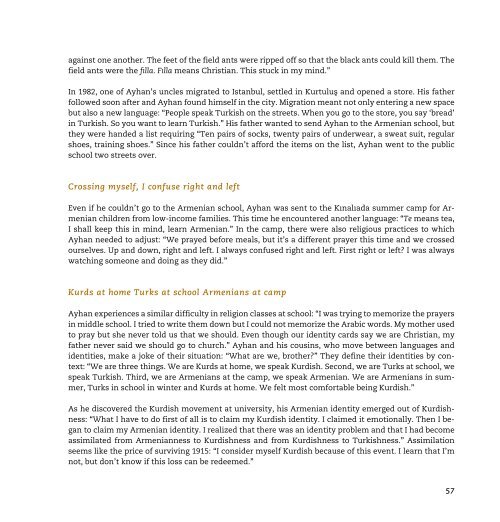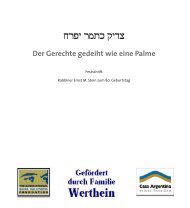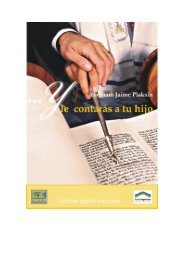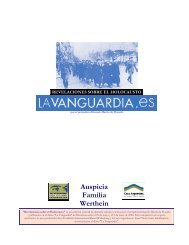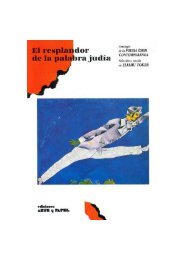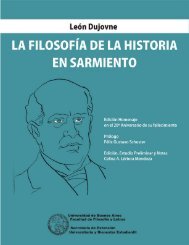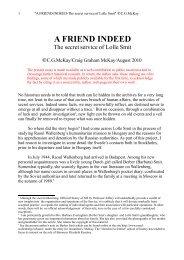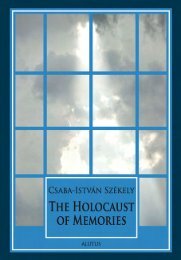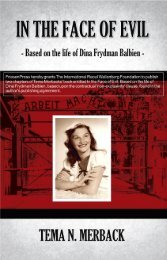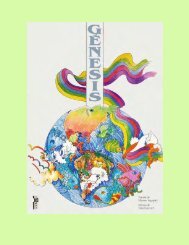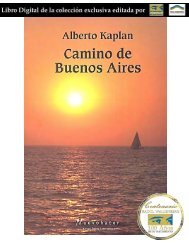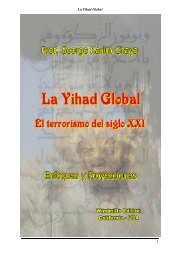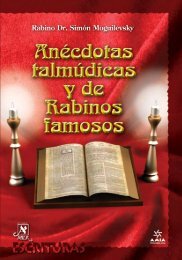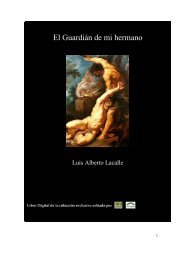Speaking to One Another - The International Raoul Wallenberg ...
Speaking to One Another - The International Raoul Wallenberg ...
Speaking to One Another - The International Raoul Wallenberg ...
- No tags were found...
Create successful ePaper yourself
Turn your PDF publications into a flip-book with our unique Google optimized e-Paper software.
against one another. <strong>The</strong> feet of the field ants were ripped off so that the black ants could kill them. <strong>The</strong>field ants were the fılla. Fılla means Christian. This stuck in my mind.”In 1982, one of Ayhan’s uncles migrated <strong>to</strong> Istanbul, settled in Kurtuluş and opened a s<strong>to</strong>re. His fatherfollowed soon after and Ayhan found himself in the city. Migration meant not only entering a new spacebut also a new language: “People speak Turkish on the streets. When you go <strong>to</strong> the s<strong>to</strong>re, you say ‘bread’in Turkish. So you want <strong>to</strong> learn Turkish.” His father wanted <strong>to</strong> send Ayhan <strong>to</strong> the Armenian school, butthey were handed a list requiring “Ten pairs of socks, twenty pairs of underwear, a sweat suit, regularshoes, training shoes.” Since his father couldn’t afford the items on the list, Ayhan went <strong>to</strong> the publicschool two streets over.Crossing myself, I confuse right and leftEven if he couldn’t go <strong>to</strong> the Armenian school, Ayhan was sent <strong>to</strong> the Kınalıada summer camp for Armenianchildren from low-income families. This time he encountered another language: “Te means tea,I shall keep this in mind, learn Armenian.” In the camp, there were also religious practices <strong>to</strong> whichAyhan needed <strong>to</strong> adjust: “We prayed before meals, but it’s a different prayer this time and we crossedourselves. Up and down, right and left. I always confused right and left. First right or left? I was alwayswatching someone and doing as they did.”Kurds at home Turks at school Armenians at campAyhan experiences a similar difficulty in religion classes at school: “I was trying <strong>to</strong> memorize the prayersin middle school. I tried <strong>to</strong> write them down but I could not memorize the Arabic words. My mother used<strong>to</strong> pray but she never <strong>to</strong>ld us that we should. Even though our identity cards say we are Christian, myfather never said we should go <strong>to</strong> church.” Ayhan and his cousins, who move between languages andidentities, make a joke of their situation: “What are we, brother?” <strong>The</strong>y define their identities by context:“We are three things. We are Kurds at home, we speak Kurdish. Second, we are Turks at school, wespeak Turkish. Third, we are Armenians at the camp, we speak Armenian. We are Armenians in summer,Turks in school in winter and Kurds at home. We felt most comfortable being Kurdish.”As he discovered the Kurdish movement at university, his Armenian identity emerged out of Kurdishness:“What I have <strong>to</strong> do first of all is <strong>to</strong> claim my Kurdish identity. I claimed it emotionally. <strong>The</strong>n I began<strong>to</strong> claim my Armenian identity. I realized that there was an identity problem and that I had becomeassimilated from Armenianness <strong>to</strong> Kurdishness and from Kurdishness <strong>to</strong> Turkishness.” Assimilationseems like the price of surviving 1915: “I consider myself Kurdish because of this event. I learn that I’mnot, but don’t know if this loss can be redeemed.”57


